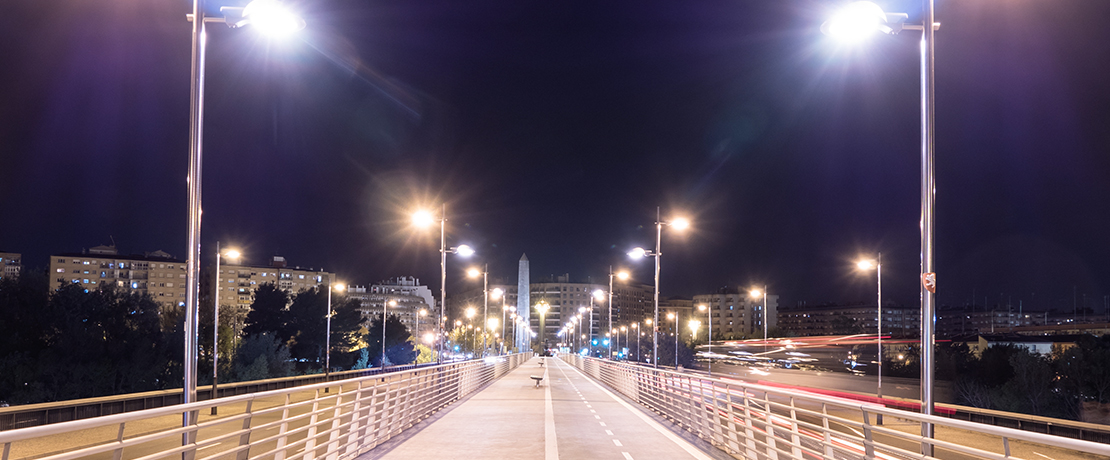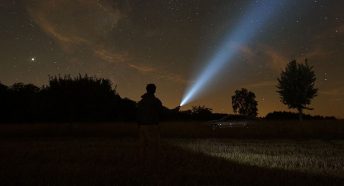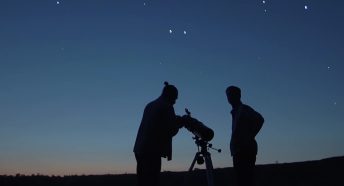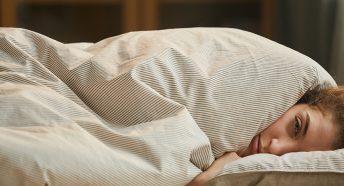What is light pollution?
An interview with Bob Mizon
Coordinator of the British Astronomical Association Commission for Dark Skies
What is light pollution?
Put simply, when we talk about light pollution we’re talking about light that’s in the wrong place at the wrong time, which for many of us might be something that we’ve become so used to that we don’t really think about it as being pollution any more. For example, light that comes into your home at night, or the glow in the sky that makes seeing the stars difficult, are both types of light pollution.
Is it only about seeing the stars?
The impact of light pollution causes more harm than just preventing us from observing stars and the Milky Way, our home galaxy. It has environmental effects, such as wasting resources – the sky glow is little more than wasted energy and, of course, wasted money. Light pollution has effects on wildlife, and even our health, as it affects our most basic functions, such as getting a good night’s sleep.
What can we do personally to counter light pollution?
Each of us can make a contribution to the reduction of light pollution. Our homes and businesses often have exterior lighting, either to make things safer or easier for us. It’s important to buy the correct types of exterior lighting. For example, if you need to illuminate your driveway, choosing the correct type of lighting can ensure that the overspill can be controlled and reduced. After all, if you want to make it easier to navigate your garden path after dark, there’s no need to install lights that illuminate surrounding trees. It is also helpful to choose a light that’s just bright enough for the purpose, especially with modern LED lighting which is often much brighter than bulbs made with older technology.
By choosing the type of lighting, and by being careful over how we use it, we can make a positive difference on the environment.
Surely we can’t turn all the lights off?
Of course, it’s not possible for us to turn all the lights off. The benefits we gain from appropriate lighting are huge, but we must be careful to use light carefully and when only necessary. For example, it’s wasteful to leave our garden lights on all night, but those lights are very useful when we come home from school or work, especially in the winter months.
Don’t we need light to prevent crime?
Using light to prevent crime is quite a complex topic. A garden light that’s still shining at three o’clock in the morning doesn’t really benefit anyone – we’re probably all tucked-up in bed, fast asleep. However, someone snooping around in the garden might find the light quite useful! With that said, in some cases carefully installed outdoor lighting can help deter crime, so it’s again important to think about how the lighting can be used by both you, and a potential criminal.
How much energy does light pollution waste?
No one quite knows how much energy light pollution wastes, but some simple calculations have been made. The problem with calculating energy wasted is simply that we don’t know how many street lights or external lights on homes and businesses there are. For example, an outdoor light might not be at the right angle, sending some of its light into the sky. In monetary terms, energy wastage related to light misuse could be in the region of several billions of pounds worldwide annually!
Is light nuisance against the law?
The law on light pollution is quite limited. There is the Clean Neighbourhoods and Environment Act, but that only applies to light pollution that comes into premises, but before any action would be taken you would have to show that the light pollution is affecting your health, which could be very difficult.
If councils change our street lights, will that solve the problem? What lights are the best?
You may have noticed that street lighting is changing from the orange lights that used to line our roads to modern blue-ish/white, much brighter, LED lights. The chances are that during the next 10 years or so these LED lights will be the only lights out there. Unfortunately, a lot of these LED lights are the wrong type for the job – they’re too bright for the purpose, and due to the colour or the LEDs, the light scatters, increasing the problem of light pollution at street level and compromising health and biodiversity.
Is the Government doing anything about this?
The government is currently not doing a great deal to combat this issue. However, the All-Party Parliamentary Group for Dark Skies, which is made up of MPs from all parties, is raising the issue in government, so hopefully the impact light pollution has on our lives, plants, animals, and the wider environment, will soon be recognised and addressed.
We would like to thank Bob Mizon for his insights into tackling Light Pollution. You can find out more about the commission for dark skies here: https://britastro.org/dark-skies/
CPRE want to reconnect people across the country with the wonder of a truly dark sky. Find out more about our work and how you can help here:







